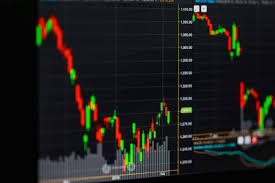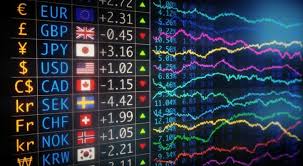
Forex Trading for Dummies: A Beginner’s Guide
If you have ever considered making money from trading currencies, you might have encountered the term “forex.” The foreign exchange market, or forex, is a global marketplace for buying and selling national currencies against one another. If you’re just starting out and feeling overwhelmed by the complexity of the financial markets, you’re not alone! In this guide, we will break things down and help you understand the essentials of forex trading. To make your journey smoother, here is a resource for you to explore: forex trading for dummies Best Uzbek Brokers.
What is Forex Trading?
Forex trading, or foreign exchange trading, involves exchanging one currency for another in an attempt to make a profit. The market is open 24 hours a day, five days a week, making it the largest and most liquid financial market in the world. Unlike stocks or bonds, where you can only buy during specific hours, forex allows for year-round trading across different time zones. This flexibility attracts many traders globally.
How Does Forex Trading Work?
The forex market operates in currency pairs, such as EUR/USD (Euro/US Dollar) or GBP/JPY (British Pound/Japanese Yen). When you trade a currency pair, you are buying one currency while simultaneously selling the other. The goal is to predict the movement of the currency pair correctly. If you think the euro will strengthen against the dollar, you might choose to buy EUR/USD. Conversely, if you believe the euro will weaken, you would sell it.
Understanding Currency Pairs
Each currency pair consists of a base currency and a quote currency. The base currency is the first listed, and the quote currency is the second. For example, in the pair EUR/USD, the euro is the base currency, and the US dollar is the quote currency. The price of the pair represents the amount of quote currency needed to purchase one unit of the base currency.
The Importance of Leverage
One of the key features of forex trading is leverage. Leverage allows traders to control a larger position with a smaller amount of capital. For instance, if a broker offers a leverage ratio of 100:1, a trader can control $100,000 with just $1,000 in their account. While this can amplify profits, it can also increase losses, making it essential for traders to use leverage judiciously.
Choosing a Forex Broker
To start trading forex, you’ll need to open an account with a reputable forex broker. There are many brokers available, and it’s crucial to choose one that fits your trading style and needs. Look for brokers that are regulated, transparent in their pricing, and offer a trading platform that you’re comfortable using. Reading reviews and comparing features can also help you make an informed decision.

Developing a Trading Strategy
A successful trader does not rely on luck but employs a well-defined trading strategy. A trading strategy outlines your approach, including when to enter and exit trades, how to manage risks, and what indicators to use. You can choose from various strategies, such as day trading, swing trading, or position trading, depending on your goals and time commitment.
Risk Management in Forex Trading
Risk management is a critical component of successful trading. It involves setting up measures to minimize potential losses. Traders often use stop-loss orders to automatically close a position at a predetermined price, limiting loss exposure. Additionally, it’s advisable to risk only a small percentage of your trading capital on any single trade to avoid significant drawdowns.
Important Trading Terms to Know
- Pip: The smallest price move in a currency pair, typically the fourth decimal place.
- Spread: The difference between the buying and selling price of a currency pair.
- Lot: The size of a trade; forex can be traded in different lot sizes, including standard, mini, and micro lots.
- Margin: The amount of money required to open a leveraged position.
Testing and Analyzing Trading Strategies
Before applying a trading strategy in the live market, it’s essential to test it thoroughly. Most brokers offer demo accounts that allow you to practice trading with virtual money. By testing your strategy in a risk-free environment, you can gain valuable experience, refine your techniques, and understand your psychological responses to losses and gains.
Keeping Emotions in Check
Trading can be an emotional rollercoaster. Fear and greed can lead to impulsive decisions that damage your trading performance. Establishing a set of rules for your trading plan can help you maintain discipline. Stick to your strategy, and don’t deviate based on emotions. Keeping a trading journal to track your trades can also provide insights into your decision-making processes and emotional tendencies.
The Importance of Continuous Learning
The forex market is always evolving, influenced by various factors like economic news, geopolitical events, and market sentiment. As a trader, staying educated and informed is crucial. Utilize online resources, partake in webinars, read books, and explore trading forums to learn from experienced traders. Continuous learning will help improve your skills and keep you updated on market trends.
Conclusion
Forex trading for beginners may seem overwhelming at first, but with the right education, practice, and mindset, you can navigate the market successfully. Focus on building a solid foundation by understanding the basics, developing a well-thought-out strategy, and managing risks effectively. Remember, consistent practice and a commitment to learning are key components of becoming a successful forex trader.